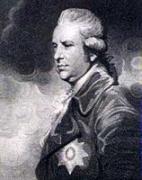|
|
||||||||||||||||||||||||
 |
Featured person
Recently added |
Reginald Lawrence (1914 - 2002): |
||||||||||||||||||||||
Professor Reginald Lawrence was a political scientist who produced work on the governance of Northern Ireland which was highly regarded in its day.
Reginald James Lawrence was born at Lambeth, London, son of a housepainter, and grew up at Dover. At first he worked as a printer in Watford, near London; on the outbreak of the Second World War in 1939 he joined the army, as a private, though by the end of the war he had been commissioned and risen to the rank of captain. Also in 1939 he had married to Helen Bright whom he met at a left-wing poetry reading evening, and her family’s more wealthy background enabled them to enroll at the London School of Economics, where Lawrence graduated with first class honours in Politics. He worked for the Cabinet Office (at that time it was a left-wing cabinet) but left the Civil Service on his appointment at Queen’s University, Belfast, as Lecturer in Extra-Mural Studies. From that department he moved to Political Science where in 1972 he was appointed to its Chair (in succession to Herbert Warrender, the expert on Thomas Hobbes).
His academic work centred on the organisation and operation of government in Northern Ireland, and he had both a thorough familiarity with the publicly available documentation as well as many and useful personal connections in the Northern Ireland Civil Service. His main work, based on his doctoral thesis, was The Government of Northern Ireland: Public Finances and Public Services 1921-1964, in which his careful and detailed examination especially of the fiscal relations between Westminster and its subordinate regional government in Ulster led him to argue for a view that the governance of the province was carried on in a relatively progressive, sensible and humane fashion. Perhaps the key here was “relative”; certainly, his book’s publication in 1965 coincided with rumblings concerning biased housing allocation which only three years later would yield a cause célèbre in Caledon, County Tyrone which would become for many an important event leading to the onset of the Troubles (though it should be pointed out that housing allocation was, if only strictly speaking, a local matter, which the Northern Ireland Government did not administer though local councils were answerable to the Minister for Home Affairs in Belfast). On the other hand, Barritt and Carter, writing in 1962, were despite caveats, cautiously optimistic about Ulster’s future, in a way which perhaps seemed, in retrospect, poignant until recently.
Amongst the explosions, literally and metaphorically, of the Troubles was an explosion of commentaries on Northern Ireland in range as well as number; this was a direct result of internal Ulster events; this was also post-1968 Europe. Lawrence’s next major piece of work was his co-production with a Queen’s colleague concerning the 1973 White Paper on Northern Ireland which set up a border poll. This poll was boycotted by the nationalist community almost completely such that of 598,283 valid ballots papers, 591,820 were for the continuance of Northern Ireland in the United Kingdom. Lawrence and his co-author commented: “We record the fact that the pro-unionists were pleased with their turnout and that the anti-partitionists were equally pleased with their boycott.”
Lawrence was appointed Professor Emeritus in 1979. He was a lover of the Ulster countryside, and had taken a cottage in the Mourne Mountains. In retirement he moved to the New Forest, where he and his wife became conservation volunteers. She predeceased him.
| Born: | 16 June 1914 |
| Died: | 14 July 2002 |
| Richard Froggatt |
| Bibliography: David Harkness: “Northern Ireland since 1920” (Dublin, 1983); Jonathan Bardon: “A History of Ulster” (Belfast 1992); obituary, Daily Telegraph, 13.8.2002; D Barritt and C Carter: “The Northern Ireland Problem: a study in group relations” (Belfast 1962); private information |


Home | Our Policies | Plaques | Browse | Search | Sponsors | Links | Help | Contact
Privacy & Disclaimer | Cookie Policy | Site Map | Website Design By K-Point
© 2024 Ulster History Circle









